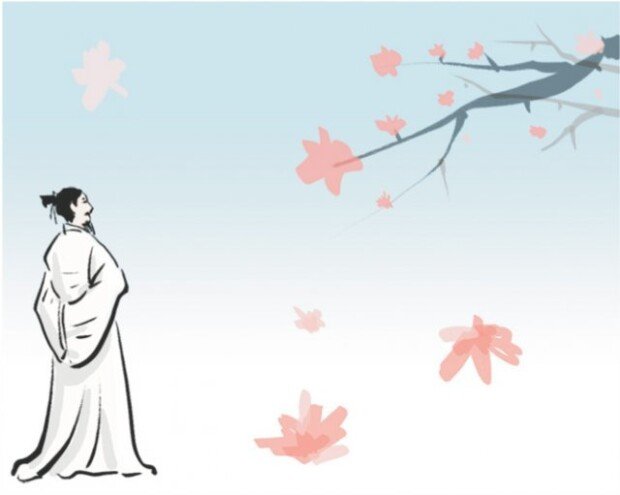I cannot tell
I cannot tell
Posted October. 28, 2022 07:39,
Updated October. 28, 2022 07:39

Every time poet Bai Juyi in Old China finished a poem. He recited it in front of his old maid. He jotted it down only when the old lady understood his poetic message. Some critics even commented that all the lines of his poetry come across as realistic, likening him to an old farmer growing grains and breeding silkworms in Shandong Province. This proves that his poetry is easy to read and friendly to ordinary readers. However, he also produced many works based on his ample knowledge and lessons to describe in-depth life philosophies and delicately romantic feelings.
This poem is unique because its language is easy and simple, but the author’s message sounds vague. He seems to portray a flower that looks like fog but isn’t. You may get the hint at the end of the lines but likely have no idea. It is hard even to see what it is roughly. This thing comes in the middle of the night and disappears out of the blue early in the morning. It stays a while, just as a springtime fantasy in your dreams but is gone out of nowhere like a cloud in the morning. The invisibly visible phantom is as beautiful and sweet as a flower, fog, springtime fantasy, and cloud. Is it your memories about your first true love or an inevitable emptiness that is part of your life?
Poet Yang Shen in the Chinese Ming dynasty once confessed his love for this poem, saying that Song Yu’s “Fu on the Gaotang Shrine” and Cao Zhi’s “The Goddess of the Luo River” would never parallel this dazzlingly beautiful piece. Interestingly, the first two poems describe a hopeless love relationship between humans and goddesses. Given this, Bai Juyi might have sung about a mirage of love between a man and his lover using limitless imagination.







